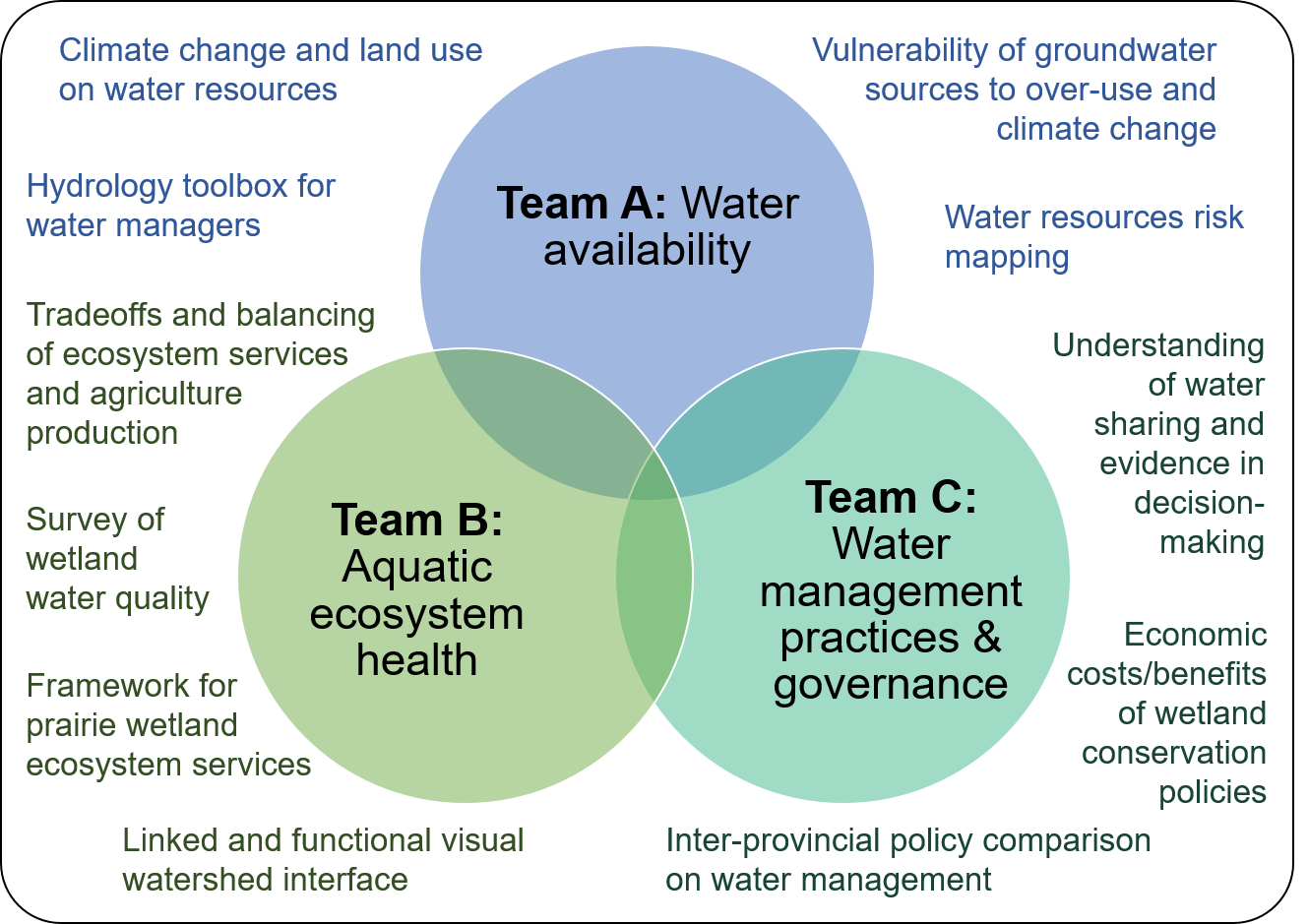Background
Prairie Water is a research project based at the University of Saskatchewan funded by the Global Water Futures program. It features over 35 researchers, young professional, and students from fields in the natural and social sciences drawing from a common interested in water research and management in the Canadian Prairies.
Beginning in the fall of 2017, Prairie Water framed its research framework according to pressing water management changes faced by partners, stakeholders, and right-holders on the Prairies. These include how watersheds will respond to aspects of future climate and land-use change, the sustainability of groundwater resources, balancing wetland and ecosystem services within an agricultural landscape, and understanding the water governance landscape across the Prairies and how this impacts decisions made on water sharing, allocation, and management.
A cornerstone of the Prairie Water project is to ensure that there remains an open dialogue among researchers and project partners to facilitate usablility and mobilization of research findings. Over the last three years, our researchers and young professionals led and contributed to numerous stakeholder meetings that have aided their ability to place their research in the context of management and policy challenges.
Vision
The central vision of Prairie Water is to enhance the resilience of prairie communities through the productition of research that promotes sustainable water and watershed management. “Resilience” refers to “the capacity to adapt and recover from environmental change or impacts”, such as those associated with extreme weather events.
We are working toward this goal by developing research products and decision-support tools to facilitate a greater understanding of how changes made in the watershed will influence water dynamics, water resource availabilty, ecosystem health, and society.
Research Topics

Prairie Water is structured under three inter-related research teams: (A) Water Availability, (B) Aquatic Ecosystem Health, and (C) Water Management Practices and Governance.
Select partner-identified challenges that inform our work are:
- Climate and land-use impacts on water management: from hydrology to policy
- Inform methods to prioritize resource use
- Vulnerability of groundwater resources to change
- "Move science off the shelf"
- Optimize aquatic ecosystem services while balancing agriculutural productivity
- Balance water needs of environment, agriculutre, and community
- Effectice infusion of science information into decision-making
- Inter-provincial governance and water management
Partners
Agricultural Producers Association of Saskatchewan
Agriculture and Agri-Food Canada
Alberta Agriculture and Forestry
Alberta Environment and Parks
Alternative Land-Use Services
Assiniboine River Basin Initiative
Canadian Rural Revitalization Foundation
Ducks Unlimited Canada & Institute for Wetland and Waterfowl Research
Environment and Climate Change Canada
International Institute for Sustainable Development
Lower Qu’Appelle Watershed Stewards
Lower Souris Watershed Committee
Manitoba Association of Watersheds
Mistawasis Nêhiyawak
North Saskatchewan River Basin Council
Prairie Habitat Joint Venture
Redberry Lake Biosphere Reserve
Red Deer River Watershed Alliance
Red River Basin Commission
Saskatchewan Water Security Agency
Saskatchewan Association of Watersheds
SaskWater
South Saskatchewan River Watershed Stewards
University of Saskatchewan
University of Calgary
University of Guelph
Wascana Upper Qu’Appelle Watershed Association

Contact Us
For general inquiries on Prairie Water, contact Lauren Miranda, Project Manager.

